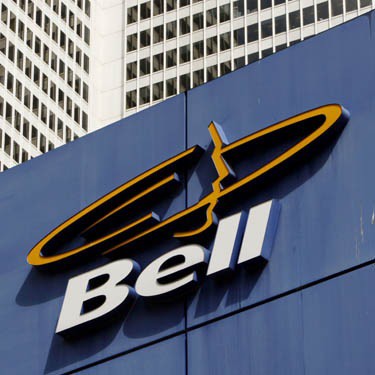Customers who flee Bell Canada’s products and services for lower prices and less abusive Internet Overcharging are being encouraged to visit what Bell internally calls its “customer winback” website. It’s Bell Canada’s place to extend special pricing and promotional offers to those considering a return to the telephone company. But Stop the Cap! found the offers less than compelling and some of the company’s claims a real stretch:
There are many reasons to switch to Bell.
Switch to Bell for the most reliable home phone service1. We’ve made many enhancements and are so confident you’ll enjoy our services, they come with a complete 30-day satisfaction guarantee, or your money back2. Switching is easy. You can keep your existing home phone number3 and we’ll take care of the details with your current service provider.
With Bell Home phone you’ll enjoy:
- The most reliable service
- No reconnection fees
Plus, take advantage of savings on more great Bell services for your home.
Bell Internet – Perfect for sharing
- The largest fibre optic network in Canada
- Upload speeds up to 3x faster than cable4
- Free Wireless Home Network
Bell Satellite TV- Over 100 HD channels
- Stunning HD picture quality – 10x better than regular cable
- Canada’s best HD PVR5 – set and manage recordings from anywhere
- On Demand movies in 1080p HD – the highest quality of any provider
With Bell Install, you get a complete and customized installation at no charge6. Sit back, relax and we’ll set everything up for you.
Join the thousands of customers switching to Bell every week and start saving.
 With six footnotes to the fine print in as many paragraphs, warning bells begin to ring almost immediately. Those footnotes can cost customers some real money:
With six footnotes to the fine print in as many paragraphs, warning bells begin to ring almost immediately. Those footnotes can cost customers some real money:
1. Applies to traditional copper-based (excluding fibre-based) wireline telephony; compared to cable telephony and based on continued service during extended power outages at customer’s home.
In other words, Bell phone service is more reliable because it works when the power goes out, unless it’s from Bell’s Fibe TV. When power drops, your Bell Fibe phone line goes with it. But if your phone lines are rotten, nothing will save you from a phone service outage, whether you are a wireline or “fibre-based” customer. By the way, although Fibe is fibre part of the way, it ultimately arrives for most customers on the same copper wire phone line technology you’ve had for decades.
2. Credit offered on service fees for TV, Internet, Home phone (excluding Mobility), and applicable installation, activation or equipment fees; does not apply to usage fees (such as long distance, additional Internet usage capacity, On Demand TV programming). Client must call within 30 days of activation. Conditions apply, see bell.ca/satisfaction.
Among the other terms and conditions not immediately disclosed:
- No refunds will be issued to customers modifying or upgrading any existing Eligible Services;
- Prior to issuing a refund for equipment purchased directly from Bell, the equipment must be returned to Bell in the same condition as when it was purchased, with all original packing materials, manuals, accessories and associated equipment, along with proof of purchase;
- You may claim no more than one (1) refund under the Bell Satisfaction Guarantee in any 12 month period;
- You must be fully compliant with the terms and conditions applicable to your Eligible Services, and
- All accounts for Bell services must be in good standing.
3. Within same local calling area
A no-brainer.
4. Current as of May 1, 2011. Comparison between Bell Fibe Internet 25 (upload up to 7 Mbps) and Rogers Ultimate Internet (upload up to 2 Mbps).
Bell apparently doesn’t think Quebec’s Videotron is worth mentioning. They upgraded to 3Mbps upload speeds for their highest tiers last February. Like AT&T’s U-verse, “fiber to the neighborhood” networks simply cannot deliver the fastest download Internet experience that fiber to the home or cable DOCSIS 3 providers can deliver, although the upload speed for Fibe (when you actually achieve 7Mbps) is a nice change from the neutered speeds cable companies provide for “the up side.” But Bell counts your upload traffic against the usage allowance.
5. Based on a combination of 30-second skip function, 9-day programming guide, expandable recording capacity and remote PVR feature. Additional equipment required.
Additional equipment costs additional money.
6. Conditions apply; see bell.ca/fullinstall for Bell Internet and bell.ca/installationincluded for Bell TV. For Home Phone, available to customers with Home Phone Choice or Complete, or with Unlimited Canada/US long distance plan, or the Bell Bundle; one-time activation fee (up to $55/line) applies, credited on the account before taxes, and additional charges may apply for installation of a new phone jack.
A complete and customized installation “at no charge,” except for that pesky $55 “activation fee” eventually credited on the account (but you still pay GST/PST on the ‘rebated’ amount). Some of our readers have complained to us that they’ve had to call Bell, sometimes repeatedly, to get that activation fee credited back. Bell sometimes forgets.
Unfortunately, for too many in suburban and rural Canada, it’s Bell telephone infrastructure or nothing — no cable provider exists to offer a competitive alternative. They are the company that charges more for less.
Considering Bell is Canada’s number one advocate for Internet Overcharging, you can do better with almost any other provider. Let Bell know they can “win you back” when they deliver scheme-free service at a fair and reasonable price. Until then, tell them they can swing alone.


 Subscribe
Subscribe






